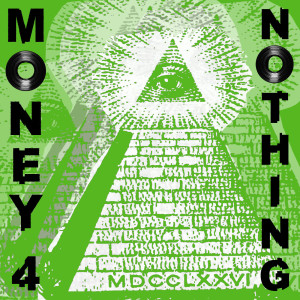
It used to be so simple. There were the major labels (all 6 of them, or whatever) and there were the independents or "the indies." Over the 80’s and 90s, a position initially adopted out of economic necessity grew into a distinctive cultural mode, with a host of aesthetic and political dimensions. Now things have changed and being "indie" no longer means the same.
To understand this shift, we take a look at the Merlin Network, powerful grouping of independent labels that banded together to grab a seat (or at least, a half-a seat) at the streaming table. Now responsible for roughly 15 percent of the modern music economy, Merlin has been a tremendous success, allowing independent labels like XL, Domino, Beggers Group and others spanning the globe to continue to thrive in an increasingly hyper-concentrated, almost entirely digital industry. But at what cost? We think through what independence can even mean within platform capitalism—and how the lessons of the past can be repurposed (if at all) to our multi-media future.
Subscribe to our newsletter!
Follow us on Twitter!
More Episodes
 2021-12-28
2021-12-28
 345
345
 2021-12-13
2021-12-13
 515
515
 2021-11-26
2021-11-26
 457
457
 2021-11-12
2021-11-12
 509
509
 2021-11-01
2021-11-01
 422
422
 2021-09-23
2021-09-23
 548
548
 2021-09-04
2021-09-04
 549
549
 2021-08-18
2021-08-18
 542
542
 2021-08-02
2021-08-02
 545
545
 2021-07-08
2021-07-08
 564
564
 2021-06-14
2021-06-14
 331
331
 2021-06-07
2021-06-07
 429
429
 2021-05-24
2021-05-24
 424
424
 2021-05-03
2021-05-03
 323
323
 2021-04-20
2021-04-20
 333
333
Create your
podcast in
minutes
- Full-featured podcast site
- Unlimited storage and bandwidth
- Comprehensive podcast stats
- Distribute to Apple Podcasts, Spotify, and more
- Make money with your podcast
It is Free
- Privacy Policy
- Cookie Policy
- Terms of Use
- Consent Preferences
- Copyright © 2015-2024 Podbean.com





